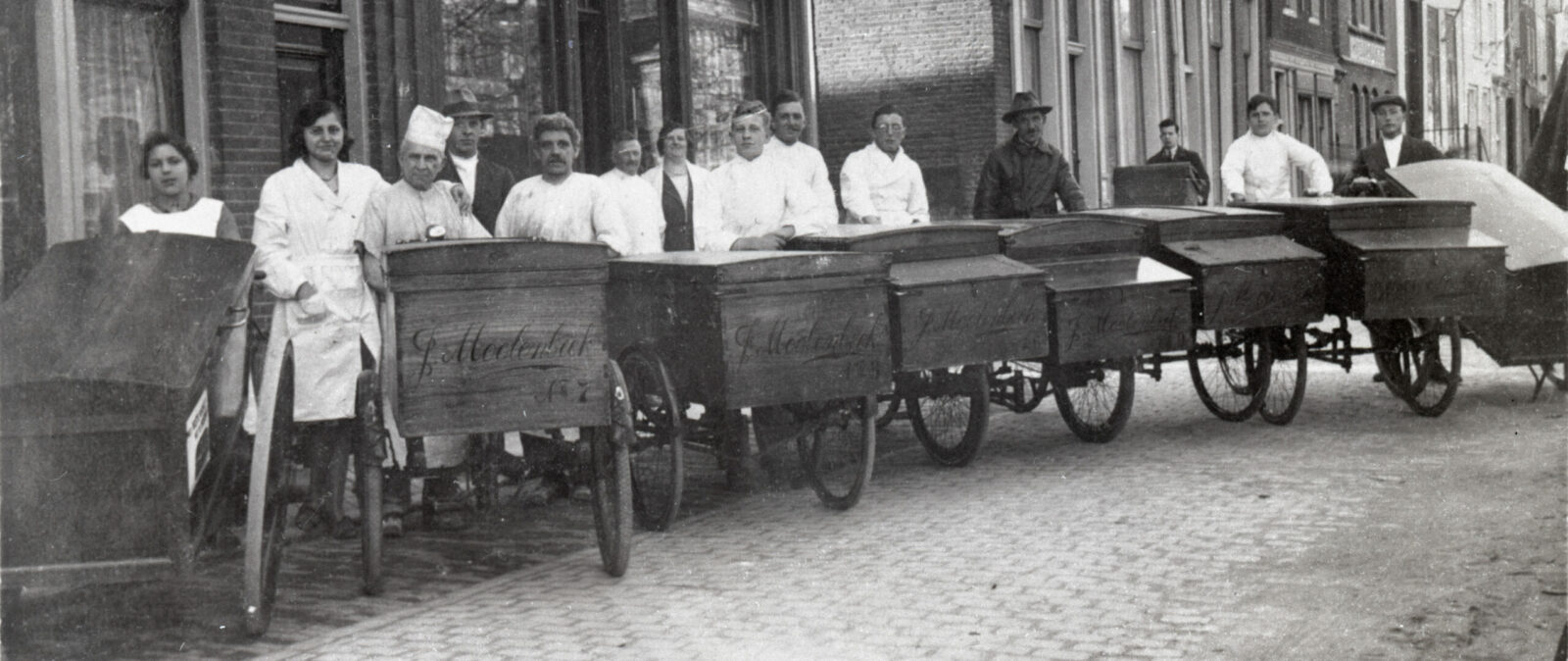Research Network ‘Societies in Context: Interactions between humans and rural-urban environments’
The ‘Societies in Context’ research network gathers researchers exploring how humans have been shaped by and given shape to their ‘environments’, broadly defined as the social, economic, institutional, and ecological contexts in which people live.
Research directors
Dr Katharine Frederick (Utrecht University)
Dr Wouter Ronsijn (Ghent University)
Description
The Societies in Context research network investigates how humans have interacted with their ecological, social, institutional, and economic environments as they sought to build their lives and develop societies and economies. We primarily bring together scholars exploring topics relating to rural and environmental history, and we encourage a regional approach to explore how humans operated within (and affected) their particular ‘environmental’ contexts, over time and across space.
Focus points
While the research network welcomes diverse topics within the broad fields of rural and environmental history, we highlight three sub-themes to provide inspiration.
- A first sub-theme is the dynamic relationship between human activities and the physical, natural environment. Research on the impact of humans on the environment has gained increasing attention in recent decades, concurrent with the expansion of environmental history and rising concerns over the consequences of unsustainable development. However, we consider this relationship from both directions: local environmental characteristics have influenced economic, social, and technological developments over time and across space, while humans have, in turn, affected the environment itself.
- A second sub-theme focuses on the interaction between human activities and the “artificial” environment: people not only relate to nature, but also to each other. How has the institutional, social, and economic context shaped (and been shaped by) the activities pursued by people? This includes the study of inequality, power relations, property relations, and labour relations within a regional context and with attention to how these dynamics relate to the natural and institutional environment.
- A third sub-theme focuses on relationships between differing spaces within a given region: specifically, rural areas and towns. We investigate how developments in both towns and larger urban spaces influence and are, in turn, influenced by developments in the rural spaces that supply food, as well as migrants, to towns. This sub-theme involves, for example, the development of trade networks between rural zones and towns and cities, as well as migration flows between rural areas and towns. These dynamics are strongly impacted by the environmental and institutional relationships highlighted in the research network’s other sub-themes.
Research scope
The nature of human interactions with their regional ‘environments’ can be systemic and enduring, but these relationships are also dynamic and subject to change. We thus invite long-term, short-term, and comparative temporal approaches, ranging from medieval to contemporary history. Additionally, we embrace the inclusion of relevant connections to broader international and global networks of people, commodities, and ideas that may have influenced regional developments. Finally, we seek to stimulate collaboration between historians who study different regions to develop insights into how humans interact with various regional ‘environments’.
Research projects
- Social Mobility and Inequality in the Low Countries, Dr Wouter Ronsijn(Ghent University), as part of the project Social Mobility and Inequality across Italy and Europe: 1300-1800 (SMITE), led by Professor Guido Alfani (Bocconi University Milan)
- Twisted Development. Failed Attempts to Create Export Textile Production in Sub-Saharan Africa, ca. 1810-1990, Dr Katharine Frederick (Utrecht University), as sub-project of the project Race to the Bottom? Family Labour, Household Livelihood and Consumption in the Relocation of Global Cotton Manufacturing, ca. 1750-1990, led by Professor Elise van Nederveen Meerkerk (Utrecht University)
- Positively Shocking! The Redistributive Impact of Mass Mortality through Epidemic Diseases and Violent Conflict in Early Modern Northwest Europe, Dr Daniel Curtis (Erasmus University Rotterdam)
- Coping with drought. An environmental history of drinking water and climate change in the Netherlaby nds, 1550-1850, led Professor Petra van Dam (VU)


